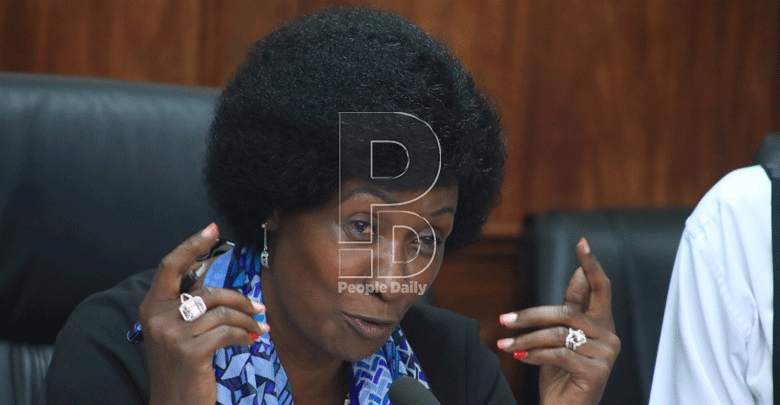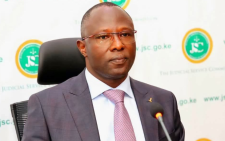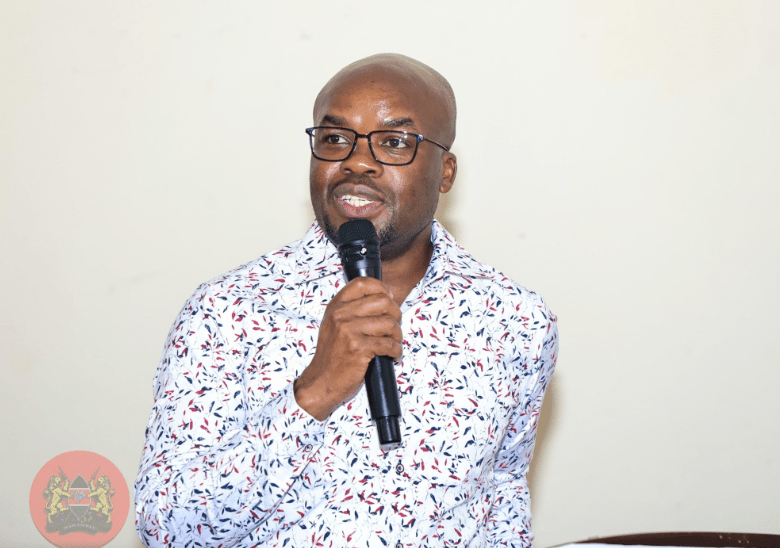TSC kicks off collection of teachers’ biometric data

Teachers Service Commission (TSC) will today start implementation of a pilot project that will electronically capture data on teachers.
The Biometric Enrolment and Validation of Teachers (BEVOT), which will be piloted in 143 schools spread across seven counties namely Kisii, Homa Bay, Uasin Gishu, Nyeri, Kilifi, Garissa and Bungoma, will conclude on Friday.
“The Commission will conduct a pilot BEVOT exercise from May 17 to 21 in 143 schools,” said the TSC in a circular.
TSC said the exercise seeks to improve delivery of services to its employees, which calls for the need of the Commission to continue undertaking reforms in data and information management for accuracy and reliability hence timely and faster decision making.
The Commission also said that it will undertake a national BEVOT in its employment in all public educational institutions before the end of next year.
Last week, TSC Secretary Dr Nancy Macharia said the Commission is working on a process to ensure all teachers joining the TSC undergo biometric enrolment before they enter the payroll.
Validate enrolment
She said the Commission has resolved to launch BEVOT in all public schools, which will entail enlisting their fingerprints which can then allow for forensic and intelligence-led investigations in cases where examination papers are tampered with, and where cell phones and other gadgets are used to commit examination malpractices.
According to 2019 Economic Survey, there were 10.5 million learners in public primary schools, 2.94 million in secondary and 42,351 in Teacher Training colleges, as at 2018.
The total number of teachers in primary schools stood at 215,363 in 2018 while that of teachers in public secondary schools and teacher training colleges was at 97,771.
The number of public secondary schools was 9,643 while that of public primary schools was 24, 241.
The biometric system is, therefore, expected to effectively manage the growing teacher resource and maintain an up-to-date data on all the tutors employed by TSC.
According to TSC, information collected from this exercise will enable establishment of a database that informs the Commission in policy and decision-making.
Upon completion of the exercise, the Commission will verify teacher distribution and utilisation and establish areas of teaching specialisation as well as validate enrolment in public schools and teachers’ bio data and employment records.
The exercise entails validation of data for teachers under employment of TSC in all public primary and secondary schools, Teacher Training Colleges, Centre for Mathematics, Science and Technology Education in Africa (CEMASTEA), Kenya Institute of Special Education (KISE), teachers in special programmes as well as the Curriculum Support Officers in all the zones.
“The exercise involves biometric enrolment through capturing of a teacher’s bio data that include finger prints and facial features and validation of personal employment data,” the TSC stated.
This will be collected through biometric data capture kits that have been pre-loaded with data.
To validate the data, TSC said teachers are required to physically present their professional documents.
The capture of teacher’s biometrics is also being collected through the kits, school specific information not limited to enrolment, streams and location is being collected.
The personal employment data to be verified include certificate of registration, National ID, letters of first appointment, offer of Contract (if any) and that of current appointment.
Consultations
Other details to be verified are academic certificates, professional certificates, Disability registration certificate (where applicable) and letter of release to other programmes (if any).
“The pilot exercise is being undertaken to pretest the reliability and validity of the tool.
It will also inform on the resources required for the roll out of the national exercise such as personnel, the logistics, time and finances,” TSC added.
This will subsequently allow for forensic and intelligence-led investigations, for instance, in cases where exam papers are tampered with and where cell phones and other gadgets are used to commit exam malpractices.
She also said that use of biometric validation will assist in vindicating innocent teachers from being blamed for offences they did not commit.
“We are at the tail-end of finalising our consultations with the Office of the Data Commissioner on the rollout of the biometric capture of all teachers,” she said.
Macharia said that during administration of 2020 KCSE, a number of cases were reported to Kenya National Examination Council (KNEC) alleging that some teachers contracted either as centre managers, supervisors or invigilators were involved in an unethical behaviour of opening exam papers as soon as they were released from the containers.
“Such teachers, it was reported, would screenshot examination questions using their cell phones before disseminating them either to candidates directly or to people hired to answer the questions on behalf of the candidates. We are very disappointed by these reports, especially when they involve professional teachers,” she explained.
She vowed that the Commission does not support any form of unethical conduct arising from any teacher, worse regarding examinations malpractices.










